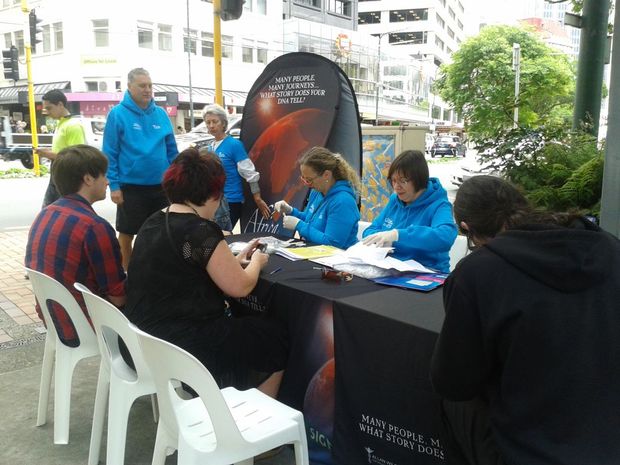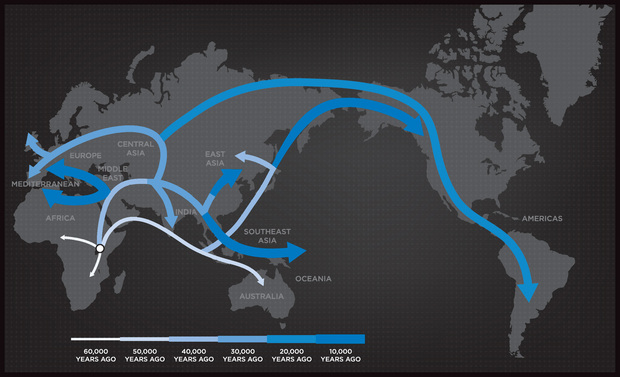
During a recent sampling event in Wellington, Lisa Matisoo-Smith (centre) and her team are collecting cheek swabs from members of the public. (image: V Meduna)
New Zealand was the final destination in humanity’s long journey out of Africa and the last major landmass to be settled. As part of the Africa to Aotearoa project, University of Otago biological anthropologist Lisa Matisoo-Smith is mapping this country's genetic heritage for the first time.
Her team is collecting cheek swabs from around 2000 New Zealanders, either in major urban centres or from various ethnic communities throughout the country, to reveal their migration histories by analysing genetic markers passed down exclusively through the maternal and paternal lines respectively.
Mitochondrial DNA, which is passed on through the maternal line, can be divided into haplogroups, genealogical groups that share a common maternal ancestor and can be used in population genetics to trace back prehistorical population movements. Similarly, sections of the non-coding DNA of the Y chromosome are used to track genetic diversity along paternal lineages. The results will provide a snapshot of New Zealand genetic diversity and people’s deep ancestry.
All three of us at Our Changing World are taking part in the project, and Veronika Meduna was the first to receive her results this week. Her mitochondrial haplogroup is X2b, which is found in about 7 per cent of Europeans, but more common around the Mediterranean and the Near East, particularly among the Druze community.
The Africa to Aotearoa project will continue for two years as part of Lisa’s James Cook Research Fellowship, and you can also listen to her interview with Kim Hill.

This map shows the migration routes out of Africa. New Zealand was the last major landmass to be settled as part of the migration that fanned out across the Pacific. (image: Genographic Project)
Lisa Matisoo-Smith, one of the founding members of the Allan Wilson Centre for Molecular Ecology and Evolution, is also a principal investigator in the National Geographic’s global genographic project, for which she manages research working with Pacific Island communities.

